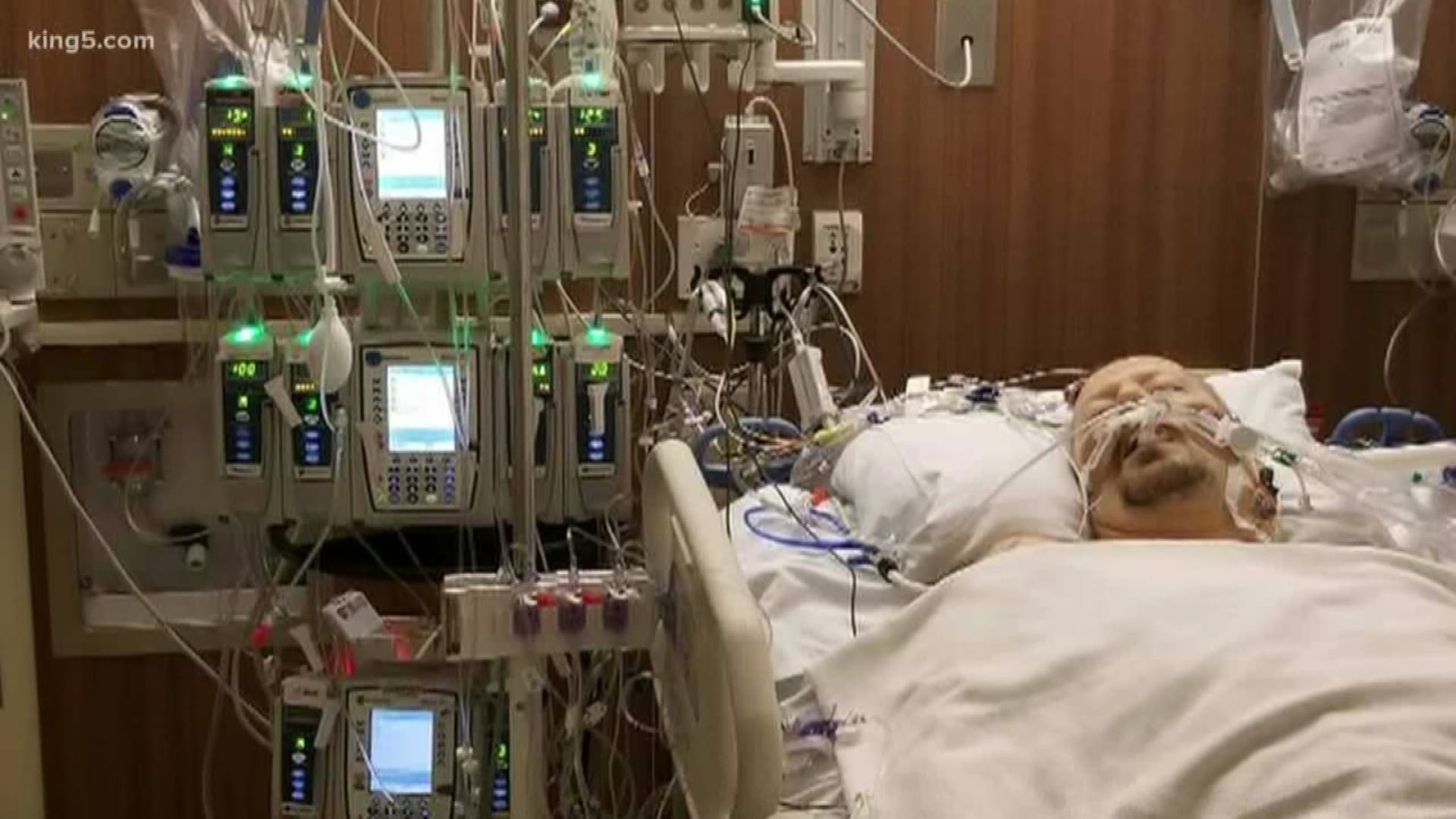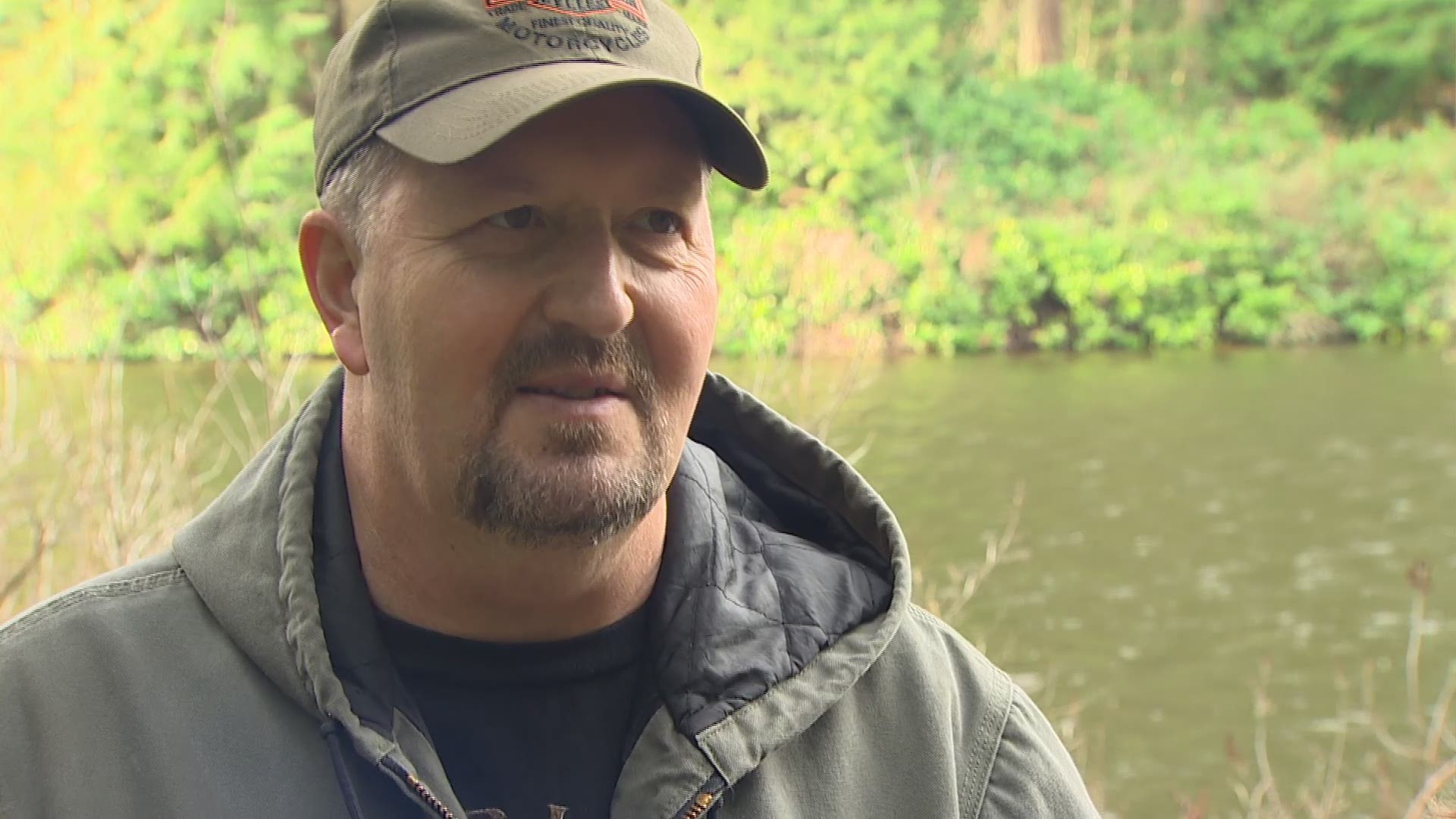ANACORTES, Wash. — Kerry Hayes was born with a heart murmur that never went away. He has his first open heart surgery at just 28 years old.
By the time he hit his mid-forties, Hayes had endured four more surgeries -- actually dying on the operating table four times. His wife Kristy was there for one of them.
"There's no words to describe what I felt in those two minutes," said Kristy. "Just standing there crying and we're just like, what is going on here?"
Worried his heart might give out at any moment Hayes opted for a transplant, but after 17 months of waiting, he still hadn't found a match. Then doctors said they had one, but there was a catch.
The heart was infected with hepatitis C.
"It made me hesitate for a second, but it was too big of an opportunity to pass up," said Hayes.
Doctors at the University of Washington have determined they can transplant hearts infected with hepatitis, and then cure the disease with a simple regimen of medications afterward. They say the success rate is 95 percent.
Doctors are taking it a step further, using organs from the growing number of Americans dying from opioid overdoses who are on an organ donor list.
"These donors look terrible, but in terms of the drug itself, the donor livers are fine, the kidneys are fine, the hearts are fine," said UW Medicine's Dr. Jorge Reyes.
"That's a lot of organs going to waste that now they can make use of," added Hayes.
Hayes' heart came from a felon and IV drug user whose life went astray, but whose heart ended up in the right place.
"I actually have a normal heartbeat now, which I've never had in my entire life," said Hayes with a smile. "It actually goes thump, thump now."


